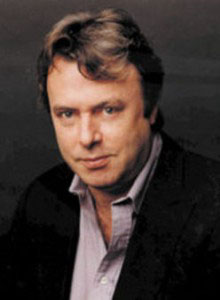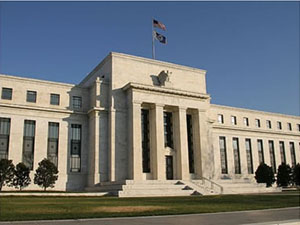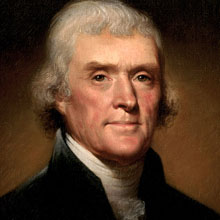December 5, 2012
Is Atheism the Solution?
Christopher Hitchens - RIP

Christopher Hitchens
Apr 3, 1949 - Dec 15, 2011
When Hitchens faced William Lane Craig on the subject: "Does God Exist" the tables were turned, at least partially. Since there was no jury to grade the debate there was no official winner. Craig did not convince me of the existence of god nor did I find his arguments compelling. In fact I failed to even understand some of them. But Craig displayed an ingenious and aggressive debating style turning atheism into another religion and asking Hitchens to prove its existence. While Hitchens did point out the non-sequitur, he did not do it in a forceful and ultimately in a winning manner. One could say that Craig won on a technicality. Effectively Hitchens was caught off guard and unprepared to give a winning retort.
Is Atheism the Issue?

Arthur C. Clarke
Any sufficiently advanced technology is indistinguishable from magic.Not comprehending nature and fearing natural phenomena, early man figured there must exist one or more magicians who must be propitiated. In effect, early man created imaginary characters called gods much like Arthur Conan Doyle created good and evil imaginary characters such as Sherlock Holmes and Professor James Moriarty. No one in his right mind confuses Sherlock Holmes with reality. Why then do people confuse god with reality?

Socrates
Hitchens states that he has no difficulty in using the Socratic method despite the doubts about Socrates' existence. I understand that perfectly since I have used Sherlock Holmes' methods to illustrate the debugging of computer software. One of the advances of homo sapiens over his fellow primates is the ability to create and use symbols as place holders for real objects. Without this ability we would not have language, we talk in symbols. When we say "chair" a real physical chair does not come forth but listeners conjure up a mental chair and communication happens.
In this symbolic sense gods exist. Not only do gods exist symbolically, their precepts could be followed just like Hitchens can use the Socratic method and I use Sherlock Holmes' detecting methods to debug software. This being the case, atheism can only state that supernatural or physical gods do not and cannot exist. I don't find that particularly useful. People can still create fictional gods who I don't find any more menacing than Professor James Moriarty or Batman's arch enemy, the Joker. The problem lies elsewhere.
Fictional Gods, Real Churches

Notre Dame de Paris Cathedral

Federal Reserve Bank
One feature common to banks and churches is grandiose architecture. Churches pretend to honor god while in reality they are trying to solve the same problem banks are solving. How to hide the fiction on which these institutions are built. Fractional reserve banking is as much faith based as the belief in god is, as soon as the faith that you can get your money back from the bank disappears, the bank collapses in a bank run. The grand architecture pretends to reassure depositors of the solidity of the bank and pretends to reassure the faithful of the solidity of their god or gods.
Some people saw a great business opportunity in becoming god's or gods' agents on earth. God, being fiction, had no say in the matter and there existed an audience hungry for an explanation of the incomprehensible magic. I know of at least one modern equivalent situation. Many if not most stock market investors don't understand the stock market. In addition, many ivory tower inhabitants have put forward false or misleading explanations. Often one finds novice investors looking for the news that caused a stock price move. News can and do move stock prices but most moves are just random noise. The modern science of complexity accounts for these moves but to the uninitiated the stock market works magically. This creates a market for investment gods and their clergy.
Just as money is not the problem, bankers are, god or gods are not the problem, the clergy is. This is why I believe atheism misses the point. Gods are harmless enough, as harmless as Sherlock Holmes and Professor James Moriarty and as any other fictional, imaginary figure. The clergy, as illustrated by crusades, jihad, pederasty, genital mutilation and other abuses, are the real problem. The clergy quickly points out that secular forces can be equally destructive. Possibly, but two evils don't add up to a good.
Separation of Church and State

Thomas Jefferson
"Congress shall make no law respecting an establishment of religion, or prohibiting the free exercise thereof;"The purpose of law is to protect the weak from the strong, in this case the citizens from the government. The framers of the Constitution wanted to prevent the establishment of a state religion like the Church of England at the service of the monarch. While I'm no legal scholar it seems to me that any decision that reaffirms this protection is positive.
I know of no better way to protect the citizen's right to practice a religion of his choice, or none, in public or in private, but not in a government office or government establishment or at a cost to taxpayers. The reason to prohibit religious activities on government premises is to prevent the opening of a back door that would circumvent the intent of the law.
Conclusion
Strange as it may seem, for the purposes of the separation of church and state atheism must fall into the category of a faith, the right not to recognize any god. The separation of church and state would prevent atheists from proselytizing in government offices or establishments just as it prohibits religious activities in these places. I believe these protections are enough for the atheist.Denny Schlesinger
Copyright © Software Times, 2000, 2001, 2003. All rights reserved
Last updated March 8, 2009.
Last updated March 8, 2009.